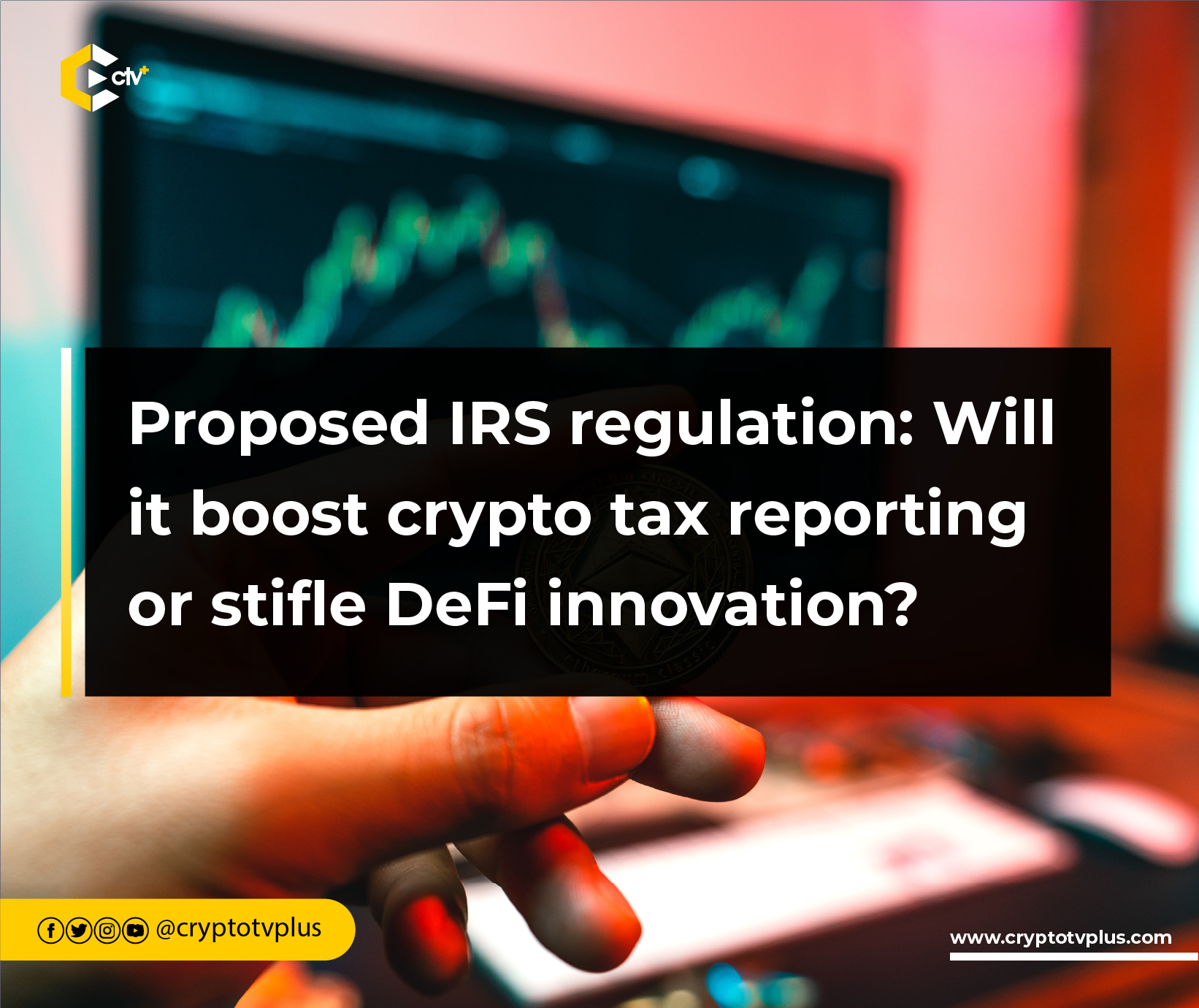Education
Proposed IRS regulation: Will it boost crypto tax reporting or stifle DeFi innovation?

The U.S. Department of the Treasury and the Internal Revenue Service (IRS) have introduced a series of proposed regulations designed to improve the reporting of cryptocurrency transactions for tax purposes. These regulations are part of the broader strategy outlined by the Biden-Harris Administration’s Infrastructure Investment and Jobs Act (IIJA) to address the tax gap, minimise tax evasion risks associated with digital assets, and ensure equitable taxation.
Key highlights of the proposed regulations:
- Reporting Obligations for Brokers: The proposed regulations focus on cryptocurrency brokers, including digital asset trading platforms, payment processors, and digital asset-hosted wallets. These brokers would be required to file information returns and provide payee statements for digital asset sales and exchanges on behalf of their customers in specific transactions.
- Introduction of Form 1099-DA: To assist users in determining their tax liabilities, brokers would need to furnish a new form called Form 1099-DA. This form is intended to simplify tax calculations and help users accurately report gains and losses from digital asset transactions.
- Expanded Broker Definition: The definition of a “broker” would encompass both centralised and decentralised digital asset trading platforms, crypto payment processors, and online wallets that store digital assets. This inclusive definition ensures that various entities involved in facilitating digital asset transactions are subject to the same reporting rules.
- Implementation Timeline: The proposed regulations indicate that brokers would start reporting information on digital asset sales and exchanges beginning in 2026, for transactions occurring during 2025. This timeline aligns with the IIJA provisions and provides brokers with adequate time to prepare for the changes.
- Revenue Generation Estimate: The Joint Committee on Taxation has estimated that these proposed provisions could generate approximately $28 billion in revenue over a decade. This additional revenue is expected to contribute to funding various infrastructure and job-related initiatives.
Will innovation in DeFi be stifled?
While the intention behind these regulations is to bring greater clarity to tax obligations, concerns have emerged about their potential impact on the ethos of blockchain and stifling innovation in the flourishing DeFi space.
At the heart of the debate lies a critical distinction: the definition of a “broker” in the context of blockchain technology. The proposed regulations seem to require even entities that merely interact with wallets – platforms that facilitate user access to blockchain data – to fulfil the obligations of a broker. This includes tracking users’ profit and loss (PnL) data and issuing tax statements annually. The repercussions of such regulations could be profound.
Blockchain, the technology underpinning most cryptocurrencies, is rooted in principles of transparency, security, and decentralization. The ethos of blockchain promotes the removal of intermediaries, enabling individuals to have greater control over their financial transactions and personal data.
Cryptocurrency tax reporting aims to strike a balance between maintaining the privacy and decentralization inherent in blockchain technology and fulfilling tax obligations. The ethos of blockchain aligns with the desire for financial autonomy, but the transition to a regulated environment raises questions about how to uphold these values while adhering to legal requirements.
Many DeFi web applications catering to U.S. users might be forced to navigate the complex realm of tax reporting, potentially stifling user adoption and usability. This raises concerns about the continued viability of peer-to-peer protocols in the United States and threatens the free and open nature of DeFi.
Even platforms that merely display public blockchain information, such as Etherscan, could be swept into this regulatory net. The far-reaching implications also extend to popular wallets like MetaMask, potentially heralding the advent of KYC and tax reporting requirements for users.
Sometimes, it seems like the government fundamentally fails to grasp the intricacies of blockchain technology and decentralized systems. It’s just like requiring every browser company to obtain a postmaster license due to email communication within their platforms. Is that feasible?
The concern here is that such regulations could stifle innovation, hinder accessibility, and compromise the decentralized principles that underpin blockchain and DeFi.
To be honest, it is just a grey area right now. The relationship between the ethos of blockchain and tax reporting is nuanced.
On the other side of the debate, some believe that regulated brokers acting as intermediaries might enable U.S. users to access DeFi protocols while complying with the new rules. However, this approach also raises questions about the true essence of decentralization and the risks of centralization by proxy.
The proposed regulations have garnered mixed reactions from the cryptocurrency industry and advocacy groups:
- Kristin Smith, CEO of the Blockchain Association, expressed that the rules if tailored appropriately, could offer clarity to everyday crypto users and help them comply with tax laws more accurately.
- Miller Whitehouse-Levine, CEO of the DeFi Education Fund, criticized the proposed approach, asserting that it attempts to apply regulatory frameworks that may not align with the unique characteristics of the crypto ecosystem.
- Some lawmakers, including House Financial Service Committee Chair Patrick McHenry, have voiced concerns over the breadth of the proposed regulations. McHenry characterised them as “misguided” and part of the Biden Administration’s ongoing efforts to regulate the digital asset sector.
Closing note
As the conversation continues, it becomes evident that the intersection of blockchain and regulation is complex and multifaceted.
I think the general voice out there in the community, is a call for “reasonable” regulation that underscores the delicate balance required. There are certain use cases, such as API services and Miner Extractable Value (MEV), that may warrant certain obligations. However, concerns remain about regulations that fail to differentiate between mutable and immutable smart contracts, potentially impinging on the very ethos of blockchain technology.
There is always this inevitability of regulation.
But with this regulation, should come frameworks that accurately comprehend the intricacies of blockchain technology and the potential consequences of overreach. I don’t think the community would have issues with regulations that foster innovation while safeguarding user rights, privacy, and the principles of decentralization.












